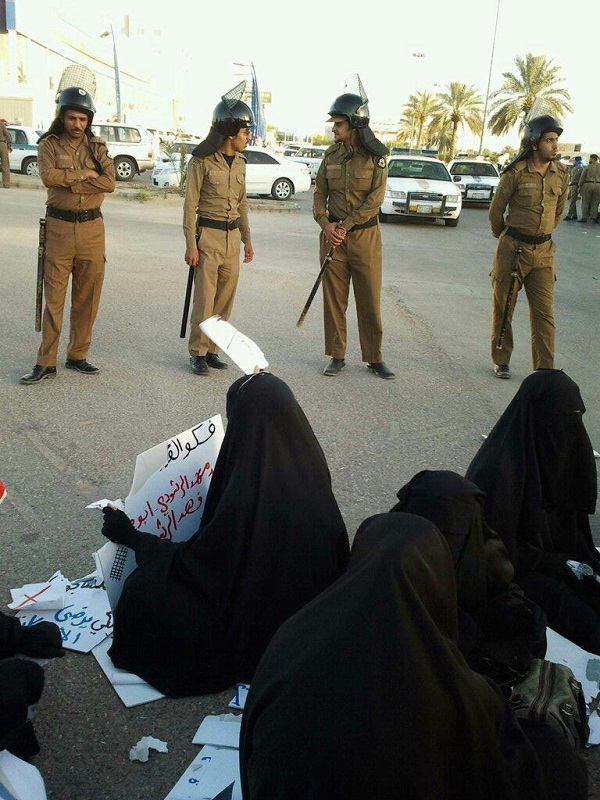Saudi Arabia Feature: The Protests in the Central Cities (Perazzo)
 Bayan Perazzo writes for Muftah:
Bayan Perazzo writes for Muftah:
Until recently, the Eastern province city of Qatif was the only Saudi Arabian city to experience regular protests since the Arab Spring erupted over two years ago. Beginning in February 2011, demonstrations in Qatif called for basic rights of citizenship and the release of political prisoners.
Although Qatif is a primarily Shiite region, protestors demands were in no way related to their religious affiliation. This did not stop the Saudi government from attempting to discredit the demonstrations by resorting to its familiar sectarian discourse. By claiming these protests were “Shiite” in nature and manipulated by Iran to destabilize the nation, the Saudi government was fairly successful in isolating the Qatif protests and preventing them from spreading to other parts of the country.
In recent months, however, protests in the central cities of Qassim and Riyadh have become more frequent. In January 2013, a group of 11 women and children were arrested for demonstrating in front of the Board of Grievances in Buraida, a town in Qassim. In February 2013, 50 more women were arrested in Riyadh and Qassim. Finally, in the first week of March, more than 170 men, women, and children were arrested in Buraida after organizing a sit-in in front of the Bureau of Investigation and Public Prosecution. A spokesman for the Buraida police reported that one hundred protesters have been released, According to Saudi activists, several female demonstrators remain unaccounted for.
Protestors’ demands in Qassim have been very similar to those in Qatif. They have asked for the release of political prisoners, fair trials, an end to inhumane practices in prisons, and respect for citizens’ basic rights. The Saudi Civil and Political Rights Association released a statement stating that protestors in Qassim resorted to public demonstrations only after exhausting all other formal means of registering their grievances.
While initial protests in Buraida were limited to the family members of prisoners, other concerned citizens soon joined the cause. The issue of indefinite detentions was a particular focus of their efforts. In Saudi Arabia, it is not uncommon for individuals to be imprisoned for years without trial. Information about the charges against them often is also withheld. Some prisoners who have served their sentences in full are not released, and remain detained without recourse.
Protests in Saudi Arabia’s central region (an area generally adhering to a stricter interpretation of Sunni Islam) have discredited the government’s sectarian rhetoric. In response, the Saudi regime has resorted to another old ploy, religious extremism. In the past, the government has attempted to justify its unlawful treatment of prisoners in Qassim and Riyadh by pointing to their alleged ties to terrorist groups. Without proper legal representation and fair trials, these individuals have no opportunity to defend themselves against these charges.

 Saturday, March 9, 2013 at 6:48
Saturday, March 9, 2013 at 6:48
Reader Comments